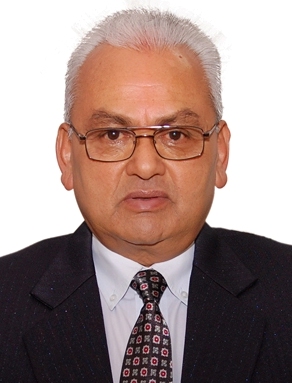Statement by Hon. Mahendra Bahadur Pandey, Minister for Foreign Affairs and Leader of the Nepalese Delegation to the Asian-African Ministerial Meeting
Jakarta, Indonesia, 20 April 2015
Madame Co-Chair Hon’ble Minister for Foreign Affairs of Indonesia
Madame Co-Chair Hon’ble Minister for International Relation and Cooperation of South Africa
Hon. Ministers,
Distinguished delegates,
Ladies and gentlemen,
We welcome the thoughtful decision of the Government of Indonesia to host the commemorative event of the historic 1955 Bandung Conference, which Nepal had the distinguished honour to attend. My delegation believes the event marks a fitting tribute to that unprecedented, epochmaking and visionary undertaking of our forefathers.
I am happy to be part of this commemorative event and the process it represents. I thank you, and through you, the Government of Indonesia for the excellent arrangements made for this important meeting today as well as for the warm hospitality extended to me and my delegation since our arrival in this historic city of Jakarta.
Nepal upholds the fundamental principles adopted by the 1955 Bandung Conference. The Bandung principles, timeless and fundamental as they are, not only guide our external relations but also constitute the solid basis for Asian-African solidarity, friendship and cooperation. We strongly believe that the faithful observance of these principles is essential for achieving international peace, security, stability and sovereign equality of the States.
Madame Chair,
Our leaders in 2005 created yet another milestone by adopting the New Asian-African Strategic Partnership. This partnership needs to be further enhanced and consolidated for us to be able to cope with the emerging challenges that are both complex and multi-dimensional.
Reinvigoration of our political understanding and solidarity is critical to ensure sustainable peace, stability, development and prosperity in our countries. We can achieve this by promoting and respecting inter-cultural harmony, religious tolerance, human rights and fundamental freedoms and by effectively combating all forms of extremism, intolerance, hatred, terrorism and other transnational crimes.
We are the inheritors of rich civilizations. We have abundance of resources both natural and human. Yet, we are lagging behind in our development journey. It is unfortunate that our people are still grappling with abject poverty and hunger while a section of the world makes incredible progress in many spheres of human life. This should end without further delay. Peace, stability and prosperity cannot be achieved against the backdrop of widespread poverty and overall backwardness. This prompts us to further consolidate our strength for more meaningful and fruitful cooperation and collaboration among us. Seen from this perspective, the theme of the Conference “promoting South-South Cooperation for world peace and prosperity” assumes a particular significance.
We are far away from harnessing the full potential that the global south offers. We must, therefore, be guided by the objectives of creating a win-win situation for all the countries by promoting collaborative partnership in the areas that have the potential to generate more benefits.
The path towards development is not easy. The various non-traditional types of structural, environmental as well as other constantly emerging new global challenges have seriously constrained our development initiatives and undermined our hard earned achievements. Without addressing the specific challenges of the least developed countries, landlocked countries, small island developing states as well as the countries in situation of conflict or emerging from conflict, our pursuit of peace and prosperity for our peoples as well as for the world should not stop.
With the United Nations at the centre, Nepal views multilateralism as a continuing and indispensable process to address global challenges particularly with regard to peace, international security and development.
The wave of decolonization was perhaps the most significant achievement to the credit of Asian-African solidarity. Our solidarity is the key to our collective strength at a time when the international community is engaged in framing the post-2015 development agenda,encompassing the sustainable development goals and targets to create the world we want, and leaving no one behind, not least the poorest and most vulnerable peoples among them.
Solidarity goes a long way in ensuring that means of implementation-financial, technological as well as partnerships-are put in place including through enhanced South-South cooperation to complement but not to replace the North-South cooperation.
Madam Chair,
I wish to conclude by appreciating the hardwork of our experts and officials both in New York and Jakarta in finalizing the texts of the three documents before us. The three documents truly reflect the spirit of the historic Bandung Conference and my delegation is happy to endorse them. We express our continued solidarity for the cause of the Palestinian people.
I am confident that the deliberations in the course of this meeting as well as the Summit will be productive and fruitful in our relentless pursuit of shared peace and prosperity ahead.
I thank you all for your kind attention.


